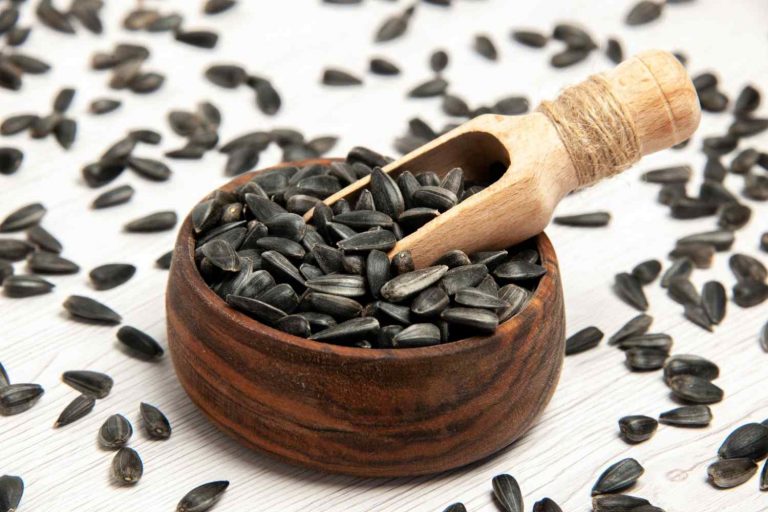Have you ever felt that annoying dryness in your eyes, like sandpaper rubbing against your eyelids? You’re not alone. Dry eyes are a common issue that many people face, and while there are numerous over-the-counter solutions, some folks are turning to natural remedies. One such remedy that’s been gaining traction is castor oil. Yes, that same oil you might use for your hair or skin can also work wonders for your eyes! Let’s dive into how castor oil can help soothe dry eyes and explore some other natural remedies to complement it.
Contents
What Causes Dry Eyes?
Before we get into the remedies, let’s briefly discuss what causes dry eyes. The condition typically occurs when your eyes don’t produce enough tears, or the tears evaporate too quickly. Factors like prolonged screen time, environmental changes, aging, and certain medications can contribute to this discomfort.
Now, let’s explore five natural remedies, focusing on castor oil and its benefits.
1. Castor Oil: Nature’s Moisturizer
How It Works
Castor oil is rich in ricinoleic acid, a fatty acid that has anti-inflammatory properties and can help moisturize the eyes. Its viscosity creates a protective layer, reducing tear evaporation. When applied properly, it can help alleviate the dryness that many people experience.
How to Use It
- Eyedrops: You can purchase castor oil eye drops or make your own. Just ensure you use high-quality, cold-pressed castor oil. A few drops in each eye can offer immediate relief.
- Eyelid Massage: Applying a small amount of castor oil to your eyelids and gently massaging can also help distribute moisture.
Pros and Cons
Pros:
- Natural and generally safe for most people.
- Provides long-lasting moisture.
- Can reduce inflammation.
Cons:
- Some individuals may experience irritation or an allergic reaction.
- Not suitable for everyone, particularly those with certain eye conditions.
Personal Experience
I started using castor oil for my dry eyes after a friend recommended it. I was skeptical at first, but honestly? It made a noticeable difference. I applied a drop before bed and woke up feeling refreshed instead of parched.
2. Warm Compresses
How It Works
Applying a warm compress can help stimulate tear production and relieve dryness. The heat increases blood circulation and can help unclog any blocked oil glands in your eyelids.
How to Use It
- Soak a clean cloth in warm water.
- Wring it out and place it over your closed eyelids for about 10 minutes.
- Repeat this process a couple of times a day.
Pros and Cons
Pros:
- Simple and effective.
- Provides instant relief and can be done anywhere.
Cons:
- Requires a bit of time and effort.
- Must be careful not to use water that’s too hot.
3. Omega-3 Fatty Acids
How It Works
Omega-3 fatty acids, found in fish oil and flaxseeds, can help improve the health of your tear film. They reduce inflammation and can promote tear production, making them a great dietary addition for those with dry eyes.
How to Use It
- Incorporate foods rich in omega-3s into your diet, such as salmon, walnuts, and chia seeds.
- Consider taking a high-quality fish oil supplement if you’re not getting enough from food.
Pros and Cons
Pros:
- Supports overall eye health.
- Beneficial for heart health as well.
Cons:
- Some people may experience digestive issues with supplements.
- It may take time to see results.
4. Hydration and Humidifiers
How It Works
Keeping your body hydrated is essential for maintaining tear production. Similarly, humidifiers add moisture to the air, which can help prevent tears from evaporating too quickly.
How to Use It
- Aim to drink at least 8 glasses of water a day.
- Use a humidifier in dry environments, especially during winter months.
Pros and Cons
Pros:
- Easy and inexpensive.
- Improves overall comfort, not just eye health.
Cons:
- Drinking too much water can lead to frequent bathroom trips.
- Humidifiers require maintenance to prevent mold growth.
5. Blink More Often
How It Works
Believe it or not, many of us blink less when we’re focused on screens, which can lead to dry eyes. Blinking helps spread tears evenly across your eyes, keeping them moist.
How to Use It
- Make a conscious effort to blink more often, especially during screen time.
- Try the 20-20-20 rule: every 20 minutes, look at something 20 feet away for 20 seconds and remember to blink!
Pros and Cons
Pros:
- Simple and cost-free.
- Can be done anywhere, anytime.
Cons:
- Requires conscious effort, which can be challenging for some.
FAQs
1. Can I use castor oil every day for dry eyes?
Yes, many people safely use castor oil daily. However, if you experience any irritation, it’s best to stop and consult a healthcare provider.
2. Are there any side effects of using castor oil for my eyes?
While generally safe, some people may experience irritation or allergic reactions. Always do a patch test and consult your doctor if unsure.
3. How long does it take to see results from these natural remedies?
Results can vary. Some people notice improvement within a few days, while others might take weeks. Consistency is key!
4. Should I still see an eye doctor if my symptoms persist?
Absolutely! If you’re experiencing chronic dry eyes, it’s important to consult an eye care professional to rule out any underlying conditions.
Conclusion
Navigating the world of dry eyes can be frustrating, but natural remedies like castor oil and others can provide significant relief. Whether it’s through moisturizing, dietary changes, or simply being more mindful about blinking, there are plenty of options to explore. Remember, it’s all about finding what works best for you.
As you consider these remedies, keep in mind that everyone’s body is different. What works wonders for one person may not have the same effect on another. So, take your time, listen to your body, and don’t hesitate to consult a healthcare professional if your symptoms persist.
This article is for educational purposes only and is not a substitute for professional medical advice. Always consult a qualified healthcare provider before making changes to your health routine.
References
-
Khatri, M., & Khatri, S. (2020). Efficacy of castor oil in the management of dry eye syndrome: A clinical trial. Journal of Eye & Vision Research. Retrieved from https://www.jevr.org
-
The National Eye Institute. (2021). Dry Eye. Retrieved from https://www.nei.nih.gov/learn-about-eye-conditions/dry-eye
-
Harvard Health Publishing. (2019). Omega-3 Fatty Acids. Retrieved from https://www.health.harvard.edu/staying-healthy/omega-3-fatty-acids
Get Your FREE Natural Health Guide!
Subscribe now and receive our exclusive ebook packed with natural health tips, practical wellness advice, and easy lifestyle changes, delivered straight to your inbox.




